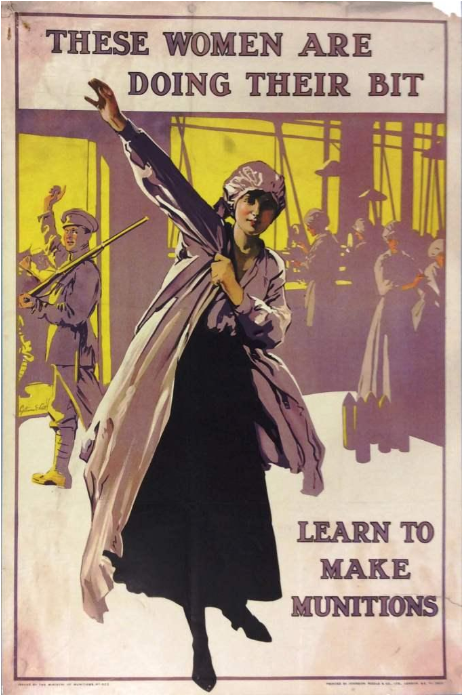
Learn to Make Munitons in WWI, The National Archives
At the start of World War I, Pankhurst paused the activities of WSPU. Approximately 2M women assumed jobs left by war-bound men.
Artwork helped recruit women workers.
Women in Fuse Factory, The National Archive

Learn to Make Munitons in WWI, The National Archives
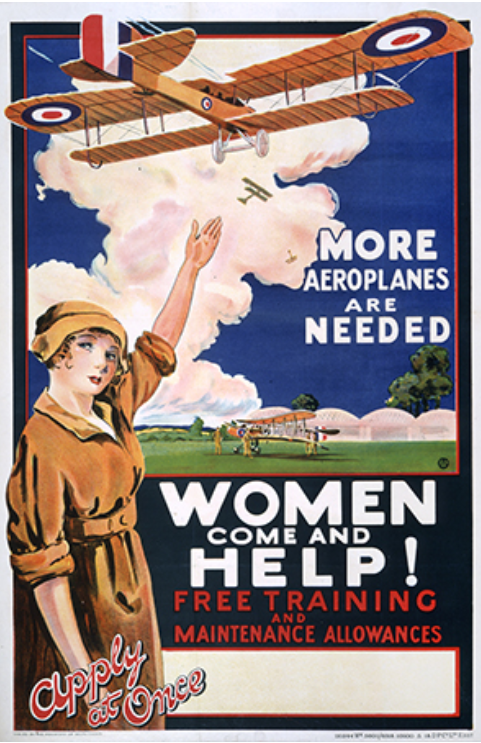
Women in Aeroplanes in WWI, The National Archives
"Women, your country needs you…Let us show ourselves worthy of citizenship, whether our claim to it be recognized or not"
~Millicent Fawcett, NUWSS Journal, The Common Cause 1914
During the last year of WWI, Parliament passed the Representation of People Act 1918 to enfranchise women over the age of 30.
As more women joined Parliament, the Act was amended to grant universal suffrage to everyone over the age of 21 in 1928. The barrier was, at last, broken.
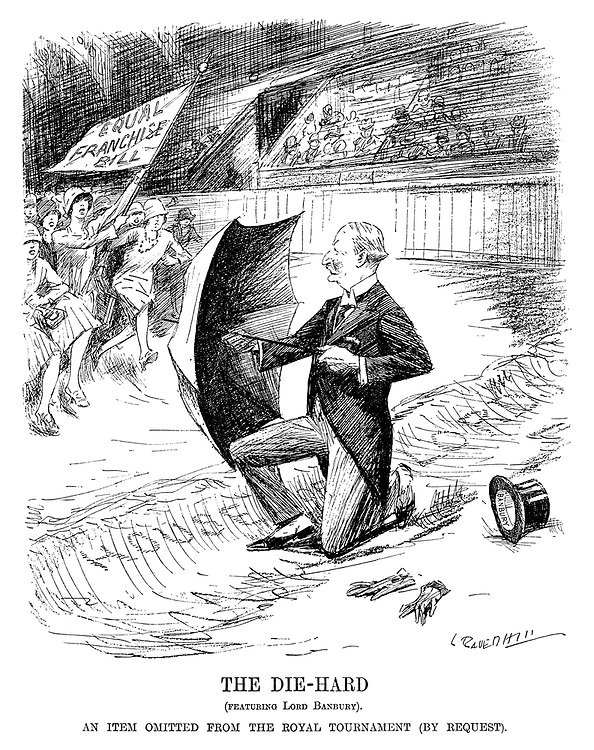
The Die Hard, May 23 1929, Punch Magazine
Conservative Parliament members were a barrier in achieving universal suffrage for all citizens over the age of 21.
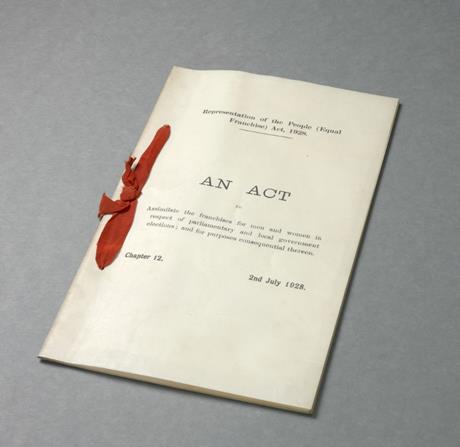
Amended Representation of the People Act of 1928, Parliament UK
“It is almost exactly 61 years ago since I heard John Stuart Mill introduce his suffrage amendment to the Reform Bill on May 20th, 1867. So I have had extraordinary good luck in having seen the struggle from the beginning.”
~ Millicent Garrett Fawcett, The Diary of Millicent Fawcett, 1928
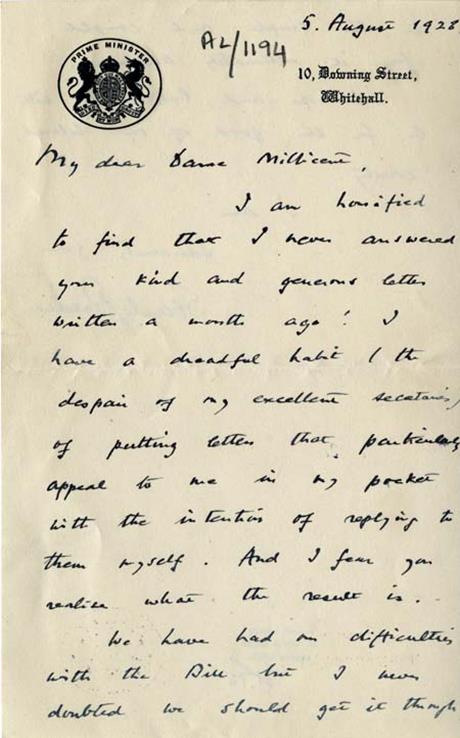
Letter from Prime Minister Stanley Baldwin to Millicent Garrett Fawcett following the passage of the Equal Franchise Act, August 5, 1928, The Women's Library, Autograph Letter Collection
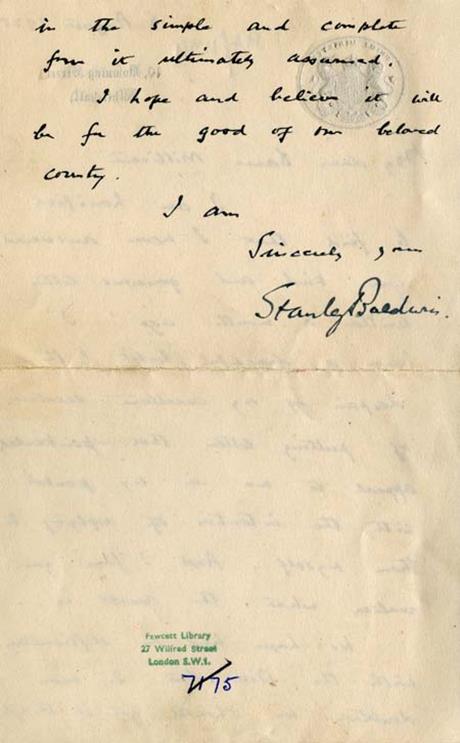
Letter from Prime Minister Stanley Baldwin to Millicent Garrett Fawcett following the passage of the Equal Franchise Act, August 5, 1928, The Women's Library, Autograph Letter Collection
Stanley Baldwin's Letter to Millicent Fawcett, August 5,1928, The Women's Library Collection, LSE Library